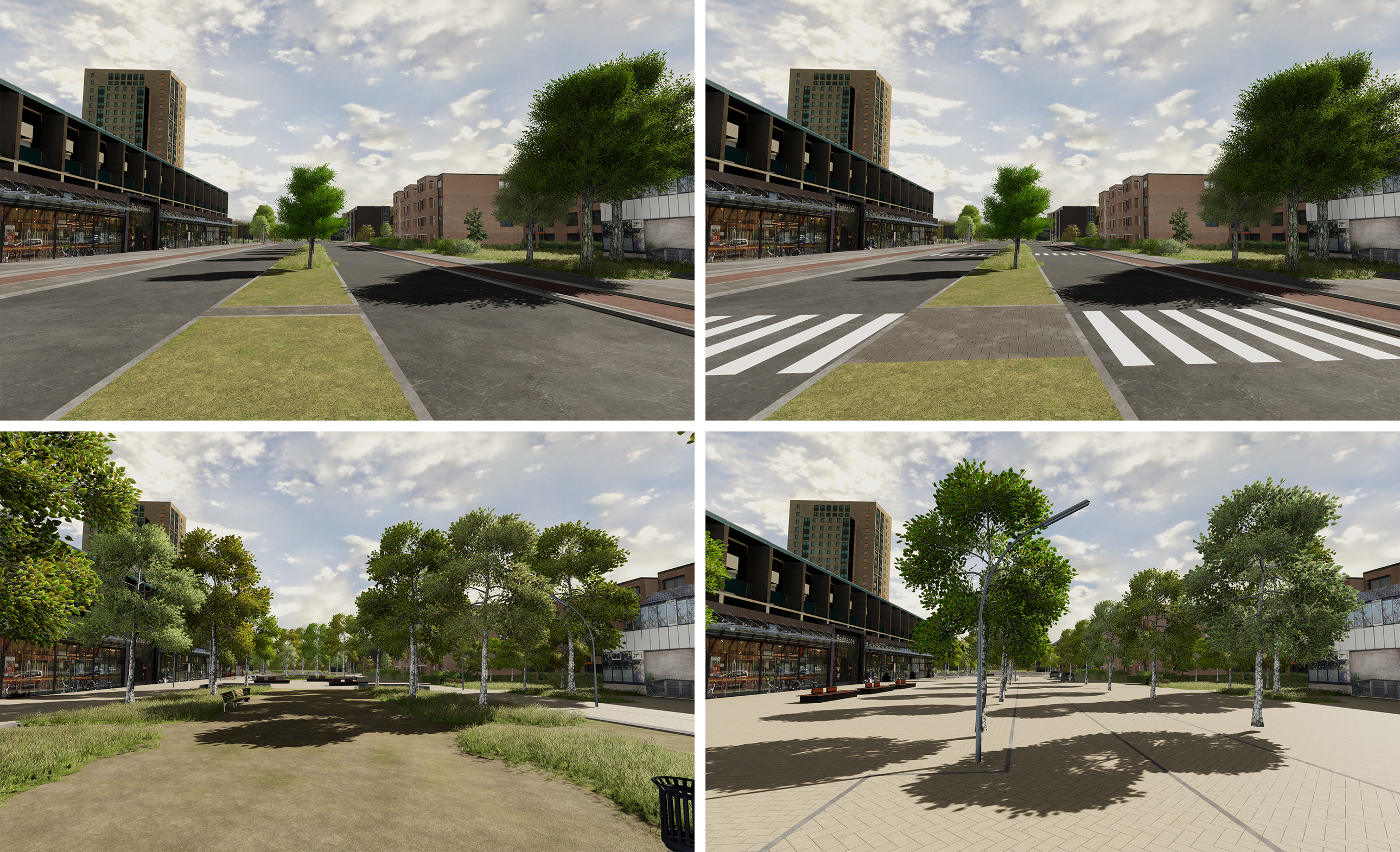Urban Design for Improving Health in Groningen
UDIHiG
People’s living environment impacts public health. On average, health levels in neighbourhoods that were built during the years of the post-war reconstruction (1950-1970) lag behind those of other parts of the city. Until recently, this has been explained mainly in terms of their physical qualities (particulate matter, noise), or in terms of the characteristics of the population (lower social status and migrants being more dominant). The effects of the urban layout on the lifestyles of the residents of such neighbourhoods are as yet understudied. There is no doubt, however, that their urban layout promotes unhealthy lifestyles by promoting car dependency; larger distances to facilities, barriers for pedestrians and cyclists caused by main roads cutting through them, etc. Related to that greenery is underused because it is experienced as unsafe.
By scaling up to the basic level of the neighbourhood, the project Urban Design for Improving Health in Groningen (UDIHiG) addresses the scale that has been identified as the most important for urban public health policies. Our ambition is to underpin the by now generally acknowledged relationship between the urban and public health with hard data derived from a scientifically valid evaluation of lifestyle changes of the residents that increase their health status, thus providing solid ground for health oriented urban interventions.
Key to UDIHiG is a multidisciplinary approach that generates optimum synergy between scientific fields of different characteristics – the health sciences, the design disciplines, change management with a focus on co-creation – in order to develop a methodology that optimizes the involvement of the residents.
Facts
| Funder: | ZonMW : The Netherlands Organization for Health Research and Development |
| Programme: | Space for Health: bundling knowledge for an environment-oriented approach |
| Overall budget: | Phase 1: € 149.983 (+ 35.245 co-funding) Phase 2: € 398.550 (+ 84.598 co-funding) |
| Grant amount: | Contribution to TU Delft: Phase 1: € 30.000 Phase 2: € 65.000 |
| Grant number: | 531001322 |
| Role TU Delft: | Project partner |
| Project duration: | Phase 1: September 2018 - September 2019 Phase 2: September 2019 - September 2021 |
| TU Delft researchers: | Dr. Stefan van der Spek Arno Freeke |
Project partners
Rijksuniversiteit Groningen, Universitair Medisch Centrum Groningen / Medische Faculteit RuG, Wijkraad Paddepoel, GGD Groningen, Platform Gras, Gemeente Groningen
